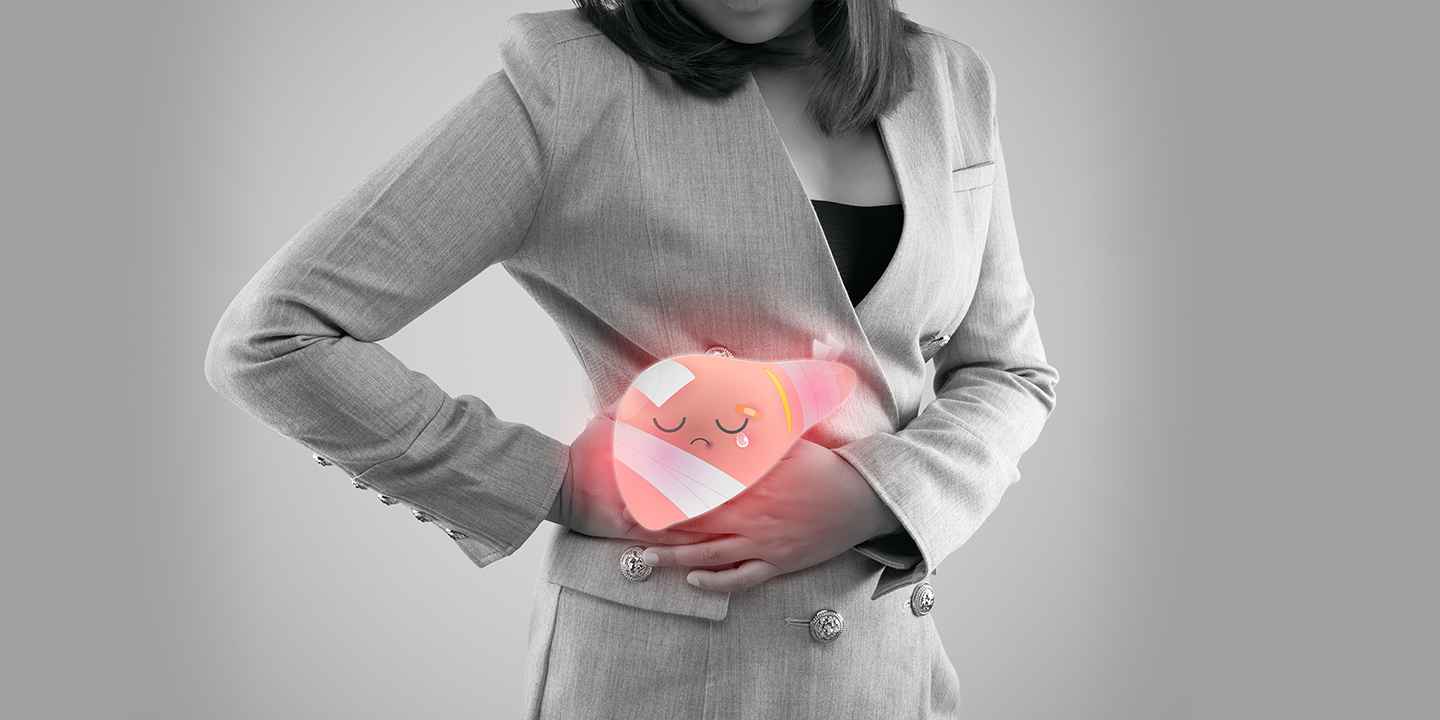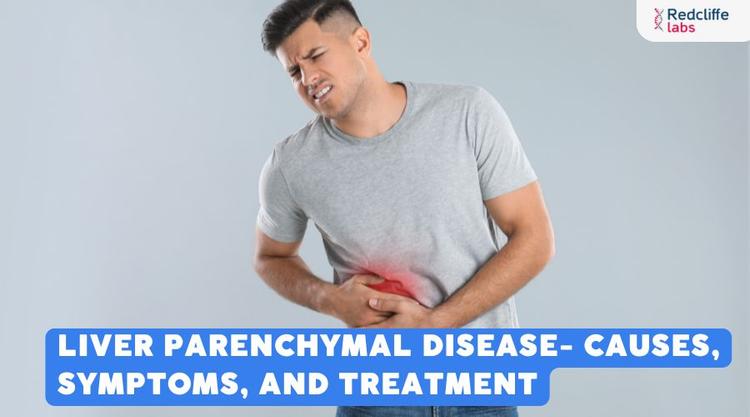Fatty liver disease: The vitamin that could potentially treat an advanced form of the condition

Medically Reviewed By
Dr. Ragiinii Sharma
Written By Srujana Mohanty
on Aug 23, 2022
Last Edit Made By Srujana Mohanty
on Jan 10, 2025

Non-alcoholic fatty liver disease (NAFLD) is a condition wherein fat deposits increase in the liver of people who do not even consume alcohol. The cases of NAFLD are widespread, with prevalence around the globe, in both developed and developing countries. NAFLD has emerged as an important factor leading to liver diseases in India as well. In India, the cases of NAFLD patients range between 9% - 35%. The risk of occurrence of NAFLD is greater in people who are obese, diabetic, or prediabetic.
Non-alcoholic fatty liver disease is a serious condition as there is not a very effective treatment available for these diseases. In severe cases, a liver transplant is the only treatment option available. To be sure it is important that you get your complete body checkup at regular intervals so that such diseases can be diagnosed at an early stage. Early stage diagnosis of NAFLD can aid in effective treatment without the need for any liver transplant.
Since the global burden of NAFLD is increasing day by day, it is important that new research is done in this field with the aim to come up with better and less invasive treatment options for the disease. One such recent study was done by a team of scientists at Duke-NUS Medical School. The study made some very important conclusions from their study.
In this article, we will talk about this study and the important conclusions made by the working scientists after the study.

The study
According to a recent study done by scientists, the increased levels of the amino acid homocysteine are strongly related to the severity of the non-alcoholic fatty liver disease. As per the research of these scientists, supplements of folic acid and vitamin B12 can delay or prevent non-alcoholic fatty liver diseases.
Non-alcoholic fatty liver disease is a broad term given to a range of liver diseases that affect people who do not consume alcohol. Non-alcoholic fatty liver diseases are characterised by the build-up of fat in the liver which may lead to liver transplant in more severe cases. If the non-alcoholic fatty liver diseases further lead to scar tissue formation and inflammation, it refers to a condition known as non-alcoholic steatohepatitis (NASH). According to the first author of the study and the senior research fellow at the Laboratory of Hormonal Regulation, Duke-NUS, Dr. Madhulika Tripathi, the fat deposition in the liver at an early stage can be reversible, however, if it progresses to NASH, it can lead to liver cirrhosis, dysfunction, and even cancer.
The difficulty in understanding the mechanics of NASH has made its pharmacological treatment impossible. Till now, it is known that the increased levels of amino acid homocysteine in the blood are associated with liver diseases, but its exact role in the development of the disease is still not known. The authors of the recent study, Dr. Tripathi, Dr. Brijesh Singh, and his team of researchers in India, the US, Singapore, and China have confirmed the association of homocysteine with the progression of NASH through preclinical models and humans. The team of scientists also noted that the increased levels of homocysteine in the blood led the amino acids attached to the liver proteins to change their structure and delay their functioning. The attachment of homocysteine to syntaxin 17 (a protein) blocks the protein, thereby inhibiting it to perform its function. The main role of the syntaxin 17 protein is in autophagy, that is, the transportation and digestion of fat. Delayed autophagy causes the fat cells to accumulate in the liver leading to the development and progression of non-alcoholic fatty liver diseases.
The team of researchers supplemented the diet of the preclinical models with folic acid and vitamin B12. The addition of these supplements to the diet increased the levels of syntaxin 17 in the liver, thereby restoring its role in autophagy. This ultimately resulted in delayed progression of NASH and reversal of liver inflammation and fibrosis. This made Dr. Singh states that their finding is not only important but also an inexpensive therapy to prevent and delay the progression of NASH. The levels of hepatic and serum homocysteine can act as a biomarker to detect the severity of NASH.
The team aims to investigate the effect of homocysteine on other liver proteins as well in the future.
According to the senior author of the study, Prof. Paul M. Yen, Head of the Laboratory of Hormonal Regulation at Duke-NUS’ Cardiovascular and metabolic program, since vitamin B12 and folate are safe dietary supplements recommended by the US Food and Drug Administration can act as the first-line therapies for both the treatment and prevention of NASH. folate and vitamin B12 can aid in tremendous cost-cutting of the treatment and will also reduce the burden of NASH cases in both developed and developing countries.
According to the senior vice-dean for research at Duke-NUS, Prof. Patrick Casey, the only treatment available for patients with end-stage liver disease is a liver transplant. The findings of Dr. Tripathi and her team can reverse liver damage or prevent further damage to the liver through a simple, accessible, and affordable intervention. These findings have brought new hope to people suffering from fatty liver diseases.
Takeaway
Non-alcoholic fatty liver disease is common in both developed and developing countries. The lack of proper treatment for non-alcoholic fatty liver diseases has increased the economic and medical burden of disease around the globe. At present, a liver transplant is the last resort available for patients with non-alcoholic fatty liver diseases. The findings of this recent study have come out as a boon for the medical field. Vitamin B12 and folate supplements show the potential to bean inexpensive and safe therapy for the treatment of patients suffering from non-alcoholic fatty liver diseases. Not only the treatment but these supplements can also be used for preventing the occurrence of liver-associated diseases. Although there is still more research to be done on the accuracy of these findings, now that you have a hint about it, there is absolutely no harm in adding vitamin B12 and folate supplements to your diet.
Frequently Asked Questions (FAQs)
-
How can NAFLD be managed?
Regular exercise and dietary supplements including micronutrients, and vitamins A, B3, B12, D, and E can help in managing NAFLD.
-
What are the main symptoms of non-alcoholic fatty liver diseases?
The main signs and symptoms of NAFLD include enlargement of the blood vessels present beneath the skin surface, abdominal swelling, red palms, enlarged spleen, and jaundice.
-
What are the causes of a fatty liver?
The main causes of fatty liver disease include:
- Obesity
- Type II diabetes
- Metabolic syndrome (high cholesterol, high blood pressure, high triglyceride levels, and insulin resistance)
- Certain medicines like tamoxifen, diltiazem, and amiodarone



